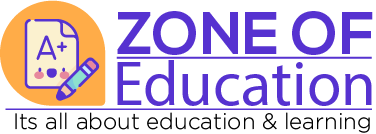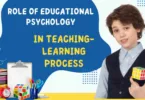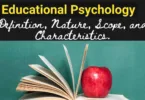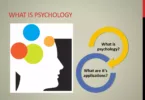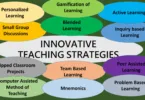The 4 major educational philosophies:
- Perennialism
- Essentialism
- Progressivism
- Existentialism
Educational philosophies are made up of beliefs about the nature of learning and teaching, the process by which students learn, and the rationale for education in society.
, There are various philosophies of education, and each one has its own unique perspective on teaching and learning. Understanding these philosophies is critical to shaping educational practices. Here are some of the major philosophies of education:
PERENNIALISM
Perennialism is a philosophy of education that emphasizes the study of timeless ideas and concepts that are essential to a person’s education. It emphasizes the development of critical thinking skills and the understanding of fundamental concepts that underlie all subject areas. While Perennialism has been influential in the development of education in the United States and around the world, it is not without its critics.
Perennialism is a philosophical approach to education that emphasizes the study of timeless ideas and concepts that are essential to a person’s education. The term “perennial” refers to something that is enduring or timeless. Perennialists believe that education should focus on the study of enduring knowledge that transcends time and culture. This philosophy is often associated with the study of the classics, which are considered to be timeless works of literature, art, and philosophy.
Perennialists believe that education should be centered around the development of critical thinking skills and understanding the concepts that underlie all subject areas. They view education as a process of inquiry and discovery, where students are encouraged to question and explore the world around them. Perennialists believe that the purpose of education is to develop a deep understanding of fundamental concepts and principles that can be applied in all areas of life.
One of the key features of Perennialism is the emphasis on the study of the classics. Perennialists believe that the classics represent the best of human knowledge and wisdom and that studying them can help students develop a deep understanding of fundamental concepts and principles. The classics are seen as a repository of enduring ideas and values that have been passed down through the ages.
Perennialism also emphasizes the importance of developing critical thinking skills. Perennialists believe that education should not just be about memorizing facts and figures, but about developing the ability to think critically and solve problems. They believe that students should be encouraged to question and analyze information and to develop their ideas and opinions.
Perennialism is often contrasted with other educational philosophies, such as progressivism and social reconstructionism. Progressivists, for example, emphasize the importance of experiential learning and the use of hands-on activities to promote learning. Social Reconstructionists, on the other hand, emphasize the role of education in promoting social change and addressing social inequalities.
Despite these differences, Perennialism has had a significant influence on education in the United States and around the world. Many schools and universities have adopted a Perennialists approach to education, emphasizing the study of the classics and the development of critical thinking skills. Perennialism has also been influential in the development of curricula in fields such as philosophy, literature, and history.
Critics of Perennialism argue that it can lead to a narrow and elitist view of education. They argue that focusing too much on the classics can lead to a neglect of other important areas of knowledge, such as science and technology. They also argue that Perennialism can lead to a focus on abstract concepts and ideas, rather than practical skills that are necessary for success in the modern world.
PROGRESSIVISM
Progressivism is a philosophy that emphasizes the importance of experiential learning and the practical application of knowledge. It is student-centered, and the focus is on developing problem-solving skills and critical thinking. Progressivists believe that education should be relevant to student’s lives and that students should be active participants in their learning.
Progressivism is a philosophy of education that emphasizes the importance of experiential learning and the use of hands-on activities to promote learning. It views education as a means to promote social progress and improve the lives of individuals and society as a whole. Progressivists believe that education should be student-centered, focusing on the interests and needs of individual learners.
The roots of progressivism can be traced back to the late 19th and early 20th centuries when social and economic changes were transforming American society. The Industrial Revolution and the rise of capitalism led to new challenges and opportunities, as well as new problems and inequalities. Progressives believed that education could play a key role in addressing these challenges and promoting social progress.
Progressivists view education as a means to promote social progress and improve the lives of individuals and society as a whole. They believe that education should be student-centered, focusing on the interests and needs of individual learners. Progressivists also believe that learning should be active and experiential, with an emphasis on hands-on activities and problem-solving.
Progressivism emphasizes experiential learning. Progressivists believe that students learn best through direct experience and active engagement with the world around them. This can involve hands-on activities, field trips, and project-based learning. By engaging in these activities, students can develop a deeper understanding of the concepts and skills they are learning.
A key feature of progressivism is the focus on student interests and needs. Progressivists believe that education should be tailored to the individual needs and interests of each student. This can involve providing students with choices in their learning, allowing them to pursue topics that are relevant and interesting to them.
Progressivists also believe that education should be relevant to the needs of society. They view education as a means to promote social progress and improve the lives of individuals and society as a whole. This can involve addressing social issues and problems through education, such as promoting social justice and equality.
Critics of progressivism argue that it can lead to a lack of rigor and discipline in education. They argue that a focus on student interests and needs can lead to a neglect of important subjects and skills, such as mathematics and science. They also argue that a focus on experiential learning can lead to a lack of knowledge and understanding of important concepts.
Despite these criticisms, progressivism has had a significant influence on education in the United States and around the world. Many schools and universities have adopted a progressive approach to education, emphasizing experiential learning and student-centered instruction. Progressivism has also been influential in the development of educational theories and practices, such as constructivism and project-based learning.
ESSENTIALISM
Essentialism is a philosophy that emphasizes the importance of teaching the basic skills and knowledge necessary for students to become productive members of society. It is teacher-centered, and the focus is on developing a strong foundation in core subjects such as reading, writing, and math. Essentialism is a philosophy of education that focuses on teaching core knowledge and skills to students. The idea is to provide students with a solid foundation of essential concepts and skills that they will need throughout their lives. Essentialists believe that education should be centered around the traditional subjects of literature, history, mathematics, and science and that students should learn through a structured and disciplined curriculum.
The key features of essentialism are the focus on core knowledge and skills. Essentialists believe that there are certain concepts and skills that all students should know and master. This can include basic literacy, numeracy, and critical thinking skills, as well as a strong foundation in the humanities and sciences.
Essentialism emphasizes a structured and disciplined curriculum. Essentialists believe that students learn best when they are provided with a clear and well-organized curriculum that emphasizes the essential knowledge and skills they need to learn. This can involve using textbooks, lectures, and other structured materials to teach students.
An important aspect of essentialism is the importance of a strong teacher-student relationship. Essentialists believe that teachers should be knowledgeable and skilled in their subject areas and that they should provide students with clear guidance and instruction. This can involve using direct instruction and teacher-led activities to help students learn.
Critics of essentialism argue that it can be too rigid and inflexible and that it can neglect the individual needs and interests of students. They argue that a focus on core knowledge and skills can lead to a neglect of other important areas, such as the arts and physical education. As a whole Essentialism has had a significant influence on education in the United States and around the world. Many schools and universities have adopted an essentialist approach to education, emphasizing the importance of core knowledge and skills. Essentialism has also been influential in the development of educational theories and practices, such as competency-based education and standards-based education.
One of the key benefits of essentialism is that it provides students with a clear and well-organized curriculum that emphasizes the essential knowledge and skills they need to learn. This can help to ensure that students are well-prepared for the challenges they will face in their academic and professional lives.
Essentialism also emphasizes the importance of discipline and structure in education. Essentialists believe that students learn best when they are provided with clear expectations and guidelines for behavior and performance. This can help to create a positive learning environment that fosters academic achievement and personal growth.
Another benefit of essentialism is that it provides students with a strong foundation in the traditional subjects of literature, history, mathematics, and science. This can help to ensure that students are well-prepared for the challenges of higher education and the workforce. It can also help students develop a well-rounded perspective on the world and their place in it.
CONSTRUCTIVISM
Constructivism is a philosophy that emphasizes the importance of students constructing their understanding of the world through active learning. It is student-centered, and the focus is on creating a learning environment that encourages exploration and discovery. Constructivists believe that students should be active participants in the learning process and that learning should be relevant to their lives. Constructivism is a learning theory emphasizing the importance of learners actively constructing their knowledge and understanding through interaction with the environment. The theory suggests that learners build knowledge through assimilation and accommodation, in which they fit new information into existing mental structures and adjust those structures to accommodate new information.
In education, constructivism is often used as a framework for designing learning experiences that engage learners in active inquiry and exploration. This approach provides learners with opportunities to construct their understanding through hands-on activities, collaborative problem-solving, and reflection on their learning processes.
One of the critical features of constructivism is its emphasis on the importance of prior knowledge and experience in shaping learning. Constructivists believe that learners bring their unique perspectives and experiences to the learning process and that these perspectives can shape how they interpret and construct new knowledge. To facilitate this process, constructivist teachers often use a variety of teaching strategies, such as inquiry-based learning, problem-based learning, and project-based learning. These approaches involve presenting students with open-ended questions or problems and allowing them to explore and discover solutions through active engagement with the materials and their peers.
Constructivism also emphasizes the importance of social interaction in learning. The theory suggests that learners can benefit from working collaboratively with their peers, allowing them to share perspectives, exchange ideas, and construct knowledge together.
Critics of constructivism argue that it can be too open-ended and unstructured and may not provide students with the foundational knowledge and skills they need to succeed in higher education and the workforce. However, proponents of constructivism argue that this approach can help students to develop a deep understanding of complex concepts and to develop critical thinking and problem-solving skills that are essential in many fields.
In Summary, constructivism is an essential learning theory that has significantly impacted education. By emphasizing the importance of active engagement, prior knowledge, and social interaction in learning, constructivism provides educators with a framework for designing learning experiences that are engaging, meaningful, and effective. As educators continue to explore new ways of promoting student learning and engagement, constructivism will likely continue to play an essential role in shaping the future of education.
EXISTENTIALISM
Existentialism is a philosophy that emphasizes individual freedom and choice. It is student-centered, and the focus is on developing students’ personal and social identities. Existentialists believe that education should be focused on the individual student’s needs, interests, and experiences.
RELATIONSHIP BETWEEN PHILOSOPHY AND AIMS OF EDUCATION
Philosophy and aims of education are interconnected, and the philosophy of education influences the aims of education. Different philosophies of education lead to different aims of education. For example, education in Perennialism aims to develop critical thinking skills and understanding of universal truths, while the aim of education in essentialism is to develop basic skills and knowledge necessary for students to become productive members of society.
It is essential to consider the philosophy of education when developing the aims of education. For example, if a school is founded on a constructivist philosophy of education, the aim of education should focus on creating a learning environment that encourages exploration and discovery. The aim of education should align with the philosophy of education to ensure that the educational practices are consistent with the underlying values and beliefs.
IMPORTANCE OF DEVELOPING CLEAR AIMS OF EDUCATION
Developing clear aims of education is critical for several reasons. Firstly, clear aims of education provide a sense of direction for educators, students, and other stakeholders involved in the educational process. It helps to ensure that everyone is working towards a common goal, which improves the effectiveness and efficiency of the educational system.
Secondly, clear aims of education help to evaluate the success or failure of the educational system. By having well-defined aims, educators can assess whether they have achieved their goals and make necessary adjustments to improve educational practices.
Thirdly, clear aims of education help to ensure that the educational system is aligned with broader societal goals. For example, if a country’s goal is to develop a highly skilled workforce, the aim of education should be aligned with this goal. This helps to ensure that education is preparing students for the demands of the workforce and contributing to the country’s economic growth.
Developing clear aims for education requires a collaborative effort among educators, policymakers, and other stakeholders. It is essential to involve all relevant parties to ensure that the aims are comprehensive, realistic, and achievable.
Philosophy and aims of education are critical components of the educational landscape. The philosophy of education provides the foundation for educational practices, and the aims of education serve as a guide for educational practices. Different philosophies of education lead to different aims of education, and it is essential to consider the philosophy of education when developing the aims of education. Developing clear aims for education is critical for ensuring that everyone involved in the educational process is working towards a common goal, evaluating the success or failure of the educational system, and ensuring that education is aligned with broader societal goals.
Although there are many Western philosophies, one of them is Existentialism, which we will discuss today about Existentialism, then this is the European philosophy that was original, that is, in the 28th century, we cannot say exactly whether it was established in 1940or 1880. We cannot say for Existentialism because it was not given by any one person, this philosophy was formed gradually, and then during the World War, it became quite popular, that is, it gradually became original.
